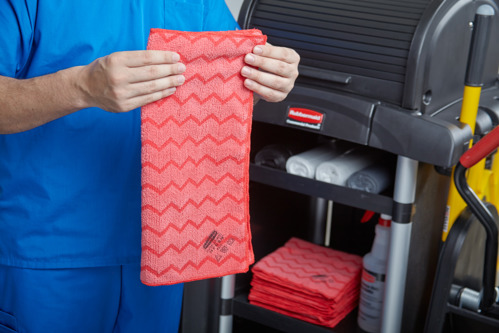Quaternary ammonium compounds — QUATS — are common in commercial cleaning products and known for their powerful disinfecting abilities. However, recent concerns about the health and environmental dangers linked to QUATS have sparked calls for change. As these risks become more evident, it’s time to reassess the widespread use of QUATS and consider safer alternatives.
Health Risks Associated With QUATS
QUATS are highly effective at killing bacteria and viruses, but their impact on human health is significant. Studies show that repeated exposure to QUATS can exacerbate or trigger respiratory issues, particularly in those with pre-existing conditions like asthma. This risk is particularly high for cleaning staff, who often handle these products daily in poorly ventilated spaces.
Skin irritation is another common issue. Direct contact with QUATS can cause allergic reactions, rashes or even chemical burns, putting users at unnecessary risk. Beyond these immediate effects, emerging research links QUATS to endocrine disruption, which can interfere with hormone regulation and reproductive health. As these compounds accumulate in the body over time, their long-term impact becomes more concerning.
Perhaps the most alarming effect is QUATS' contribution to antibiotic resistance. Overuse of these chemicals can promote the growth of bacteria that are increasingly resistant to standard treatments, further complicating efforts to control infections.
Environmental Damage From Chemical Cleaning
The environmental toll of QUATS is equally troubling. When these chemicals enter water systems through runoff, they can cause significant damage to aquatic ecosystems. Fish and other wildlife are vulnerable to toxic exposure, and over time, QUATS can disrupt entire habitats. Additionally, QUATS may contaminate drinking water sources, leading to further public health risks.
Soil contamination is another issue. QUATS can persist in the ground, affecting plant life and reducing soil quality. This chemical buildup has long-term consequences for ecosystems and agriculture. The volume of waste generated by disposable wipes and other chemical-laden products adds to the environmental burden, contributing to overflowing landfills and pollution.
Should QUATS Be Banned?
Given the health and environmental risks posed by QUATS, there’s a strong case for banning their use in commercial cleaning. Other countries have already implemented restrictions on harmful chemicals, and perhaps it’s time for QUATS to be included in these reforms. Eliminating QUATS from cleaning products would push industries to adopt safer, more sustainable solutions.
Benefits of Replacing Chemical Cleaning With Microfibre
Replacing chemical cleaning with microfibre offers a clear path forward. While microfibre can be used with cleaning agents, products like Rubbermaid Commercial Products (RCP) HYGEN™ Microfibre have been engineered to clean effectively with just water. In fact, RCP HYGEN™ Microfibre removes 99.9% of microbes without the need for harsh chemicals.
Several Rubbermaid products stand out for their performance:
HYGEN™ Durable Microfibre Cloths are versatile for everyday cleaning, easily capturing dust, dirt and bacteria.
HYGEN™ Disposable Microfibre Cloths are designed to remove 99.9% of tested pathogens with just water — a highly effective disposable option for infection control.
The HYGEN™ 45cm Microfibre Wet Pad mops large areas with water alone, significantly reducing chemical use.
HYGEN™ Microfibre Specialty Cloth leaves glass surfaces streak-free without the need for chemical cleaners.
Shifting to microfibre improves air quality, reduces chemical exposure and supports sustainable practices. These reusable cloths and pads also cut down on waste and water pollution, further protecting the environment.

Key Takeaways
The risks of QUATS in commercial cleaning are too significant to ignore. From respiratory issues and antibiotic resistance to environmental damage, the need for a safer alternative is clear. Switching to microfibre products like RCP HYGEN™ Microfibre — which cleans effectively with water — offers a healthier and more sustainable cleaning solution for both people and the planet.
Get in touch with us today to learn more about how switching to microfibre solutions can improve your cleaning processes while protecting your health and the environment!